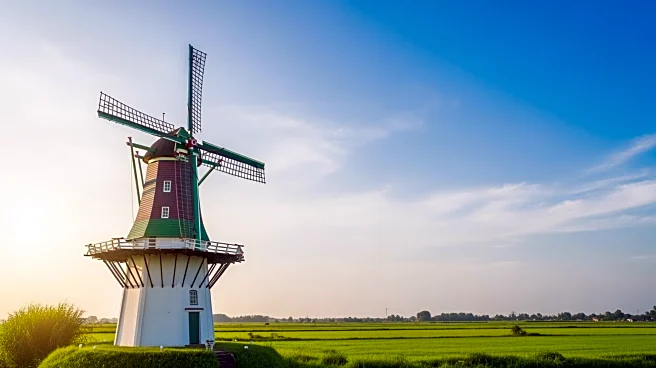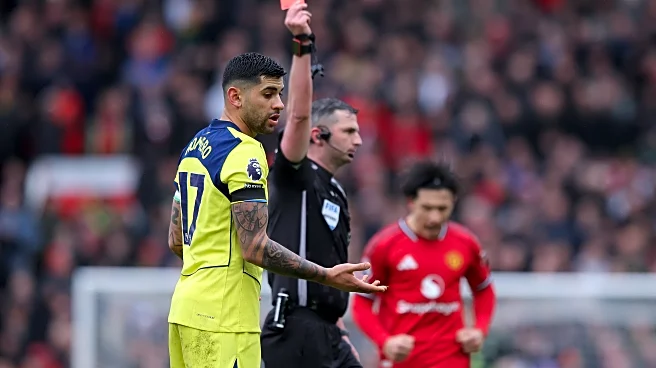What's Happening?
The Dutch government plans to increase the Value Added Tax (VAT) on hotels and holiday parks from 9% to 21% starting January 2026. This policy aims to generate approximately €1.2 billion annually, with
€910 million expected from hotels and €302 million from other accommodations. However, ABN AMRO's analysis suggests that the anticipated financial benefits may not materialize as expected. The report indicates that only about 34.8% of hotel income is subject to the higher VAT rate, as business travelers and additional spending like meals are not fully taxed. Consequently, the actual revenue from the VAT increase could be significantly lower, potentially around €285 million. The analysis also warns that the VAT hike could lead to reduced profits for hotels, which might struggle to invest in sustainable upgrades or improve working conditions.
Why It's Important?
The VAT increase poses a significant threat to the Dutch tourism industry, which is a vital component of the country's economy. The potential decline in hotel stays, estimated at 6.75%, could result in a substantial loss of revenue from foreign visitors, particularly those from Germany and Belgium who may opt for cheaper destinations. This could lead to a €511 million loss in VAT from decreased tourist spending. Additionally, the policy could negatively impact related sectors such as restaurants, museums, and retail, which rely heavily on tourist income. The broader economic implications include potential job losses and reduced tax revenues from suppliers and associated businesses. The tourism industry, already recovering from the impacts of the COVID-19 pandemic, faces further challenges due to rising energy costs, wages, and inflation.
What's Next?
As the implementation date for the VAT increase approaches, industry stakeholders, including unions, trade groups, and banks, are urging the government to reconsider the policy. They argue that the VAT hike could price the Netherlands out of the tourism market, especially with neighboring countries offering more competitive rates. The government faces pressure to evaluate the wider economic fallout and potential risks associated with the policy. The decision to proceed or revise the VAT increase will have significant implications for the €20 billion tourism industry and the broader Dutch economy.
Beyond the Headlines
The VAT increase highlights the complex interplay between fiscal policy and economic health. While the government aims to boost revenue, the potential adverse effects on tourism and related sectors underscore the need for a balanced approach. The situation raises ethical considerations about the responsibility of policymakers to safeguard industries that contribute significantly to national prosperity. The long-term impact on the Netherlands' reputation as a tourist-friendly destination could also influence cultural and economic dynamics.











